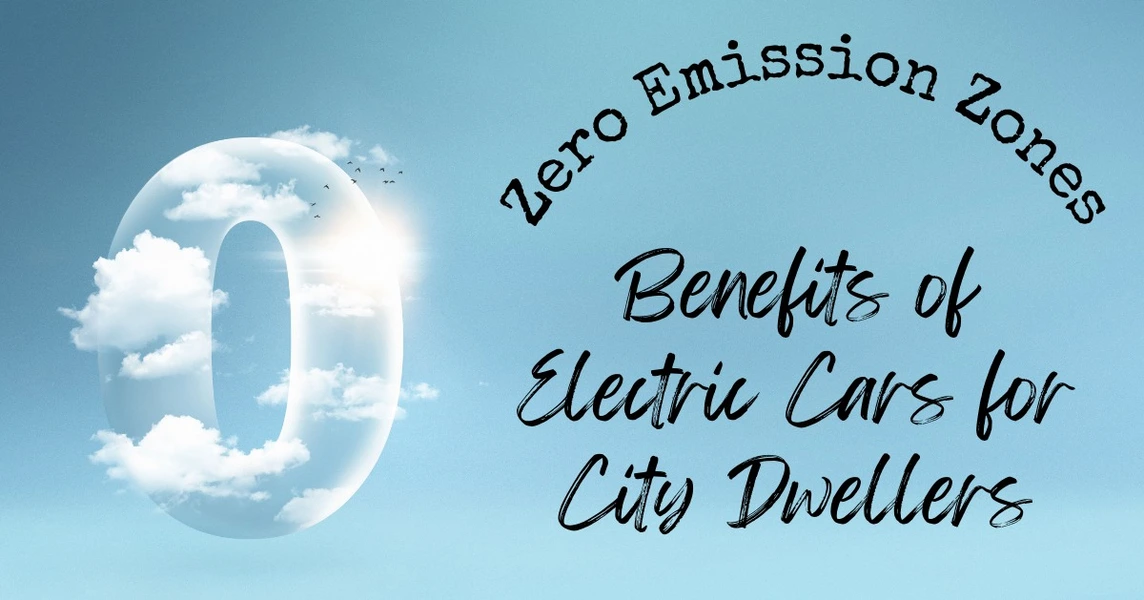As urban centers around the world increasingly adopt zero-emission zones (ZEZs) to combat air pollution and reduce carbon footprints, electric cars are becoming not just a viable choice but a necessary shift for city dwellers. This blog delves into the myriad benefits of electric vehicles (EVs) in an urban context, highlighting why they are becoming an essential part of city living.
What are Zero Emission Zones?
Zero emission zones are specific areas within cities where only vehicles that produce no emissions are allowed to operate. These zones aim to decrease pollution levels, improve air quality, and promote the use of greener transportation alternatives, such as electric cars. Major cities like London, Paris, and Amsterdam are leading the charge, implementing ZEZs to create healthier, more sustainable urban environments.
Key Benefits of Electric Cars in Urban Settings
1. Improved Air Quality
Electric cars produce no tailpipe emissions, which means they don’t emit nitrogen oxides, particulates, or any of the other pollutants associated with gasoline or diesel engines. This significantly reduces urban smog and helps improve overall air quality, making cities healthier places to live.
2. Cost-Effective Operation
Running an electric vehicle is generally cheaper than maintaining a combustion engine car. EVs have fewer moving parts, which reduces the likelihood of mechanical failures and lowers maintenance costs. Additionally, electricity is cheaper than gasoline or diesel on a per-mile basis, particularly with the increase in high-efficiency models and supportive infrastructure.
3. Access to Restricted Zones
With the establishment of zero-emission zones, electric cars offer the practical benefit of unrestricted access. This is especially important for residents and businesses in urban areas where ZEZs are becoming more prevalent. Being able to drive anywhere in the city without worrying about fines or restrictions is a significant advantage.
4. Noise Reduction
Electric cars contribute to a quieter urban environment. The absence of a conventional engine means that EVs operate almost silently, which significantly reduces noise pollution—a common issue in densely populated areas.
5. Energy Efficiency
Electric vehicles are more efficient than traditional gasoline cars. They convert over 60% of the electrical energy from the grid to power at the wheels, while conventional gas vehicles only convert about 20% of the energy stored in gasoline.
6. Incentives and Subsidies
Many cities offer financial incentives for electric vehicle buyers, such as tax credits, reduced registration fees, and rebates. Additionally, electric car owners often benefit from perks like free parking and the use of carpool lanes, enhancing the overall convenience and cost-effectiveness of owning an EV in the city.
7. Supporting Renewable Energy Integration
Electric vehicles can be paired with renewable energy sources like solar or wind power, which enhances their environmental benefits. Charging your EV with renewable energy further reduces your carbon footprint and supports the transition to a more sustainable energy system.
Conclusion
The shift towards electric vehicles is a cornerstone in the broader urban strategy to create sustainable, livable city environments. For city dwellers, the adoption of an electric car is not just about embracing new technology but is also a commitment to improving urban life and protecting the environment. As zero-emission zones become more widespread, the benefits of electric cars are set to increase, making them a smart, sustainable choice for modern urbanites.








